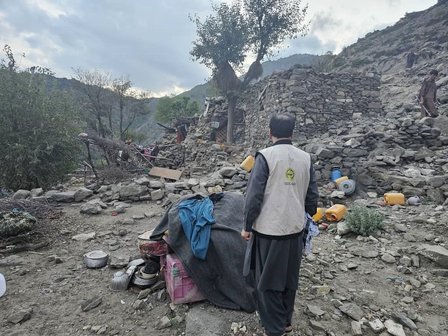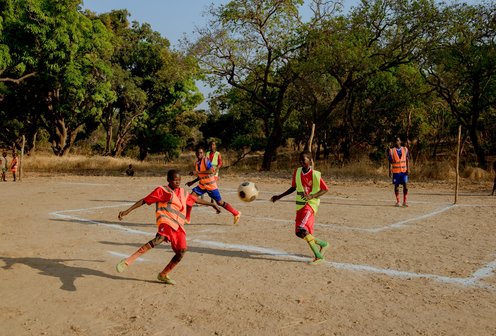Skills for life: Empowering young people through vocational training in Badghis, Afghanistan
Oct. 2, 2025
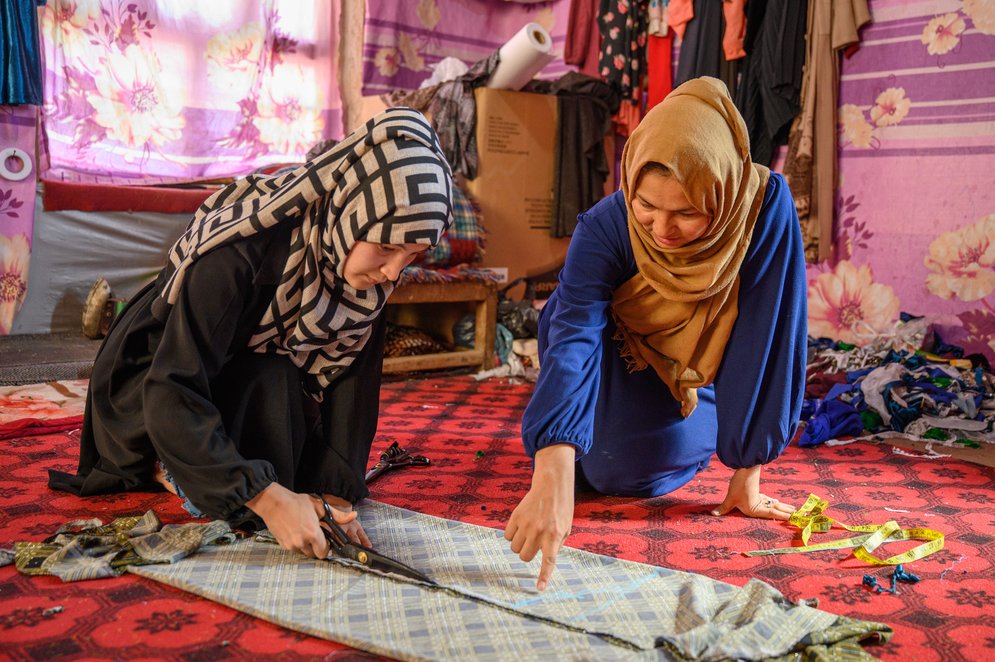
As the country of Afghanistan grapples with economic instability, climate challenges, and an influx of new returnees, the needs of the most vulnerable are not being met. 12.4 million children are currently in need of humanitarian aid, while 3.3 million children are currently out of school.
In Badghis Province, War Child, with support from UK Aid Match, is working to reach vulnerable children and their families through initiatives designed to support income generation and the wellbeing and safety of children.
Children are bearing the brunt of a struggling economy
The worsening financial situation in Afghanistan is increasing the risks faced by children. As families struggle to survive on reduced incomes, there has been a surge in reported cases of child marriage. Desperate caregivers are more frequently making last-resort decisions such as marrying their adolescent daughters to adult men.
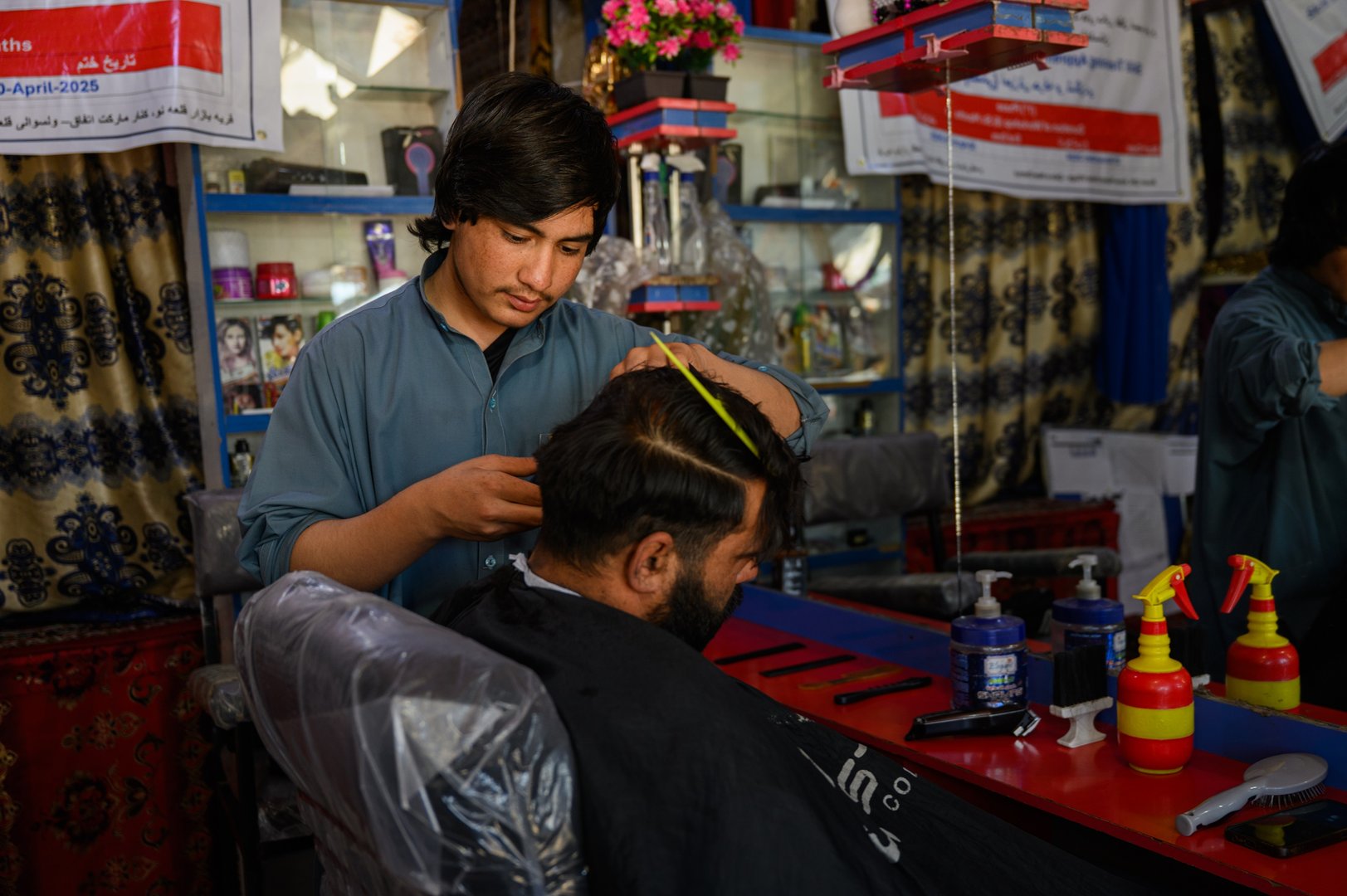
Mohammad (17) was found by War Child after being deported from Iran where he travelled to seek work. Now he is a skilled barber and hopes to start his own business.
Child labour has also grown rampant. Young people, particularly boys like Mohammad (17), are forced to work in dangerous situations to support their families. These practices rob children of their childhoods, of education, and put them at risk of exploitation and abuse.
Creating opportunity through professional development
In response to the growing needs in the country, War Child, with funding from UK Aid Match, has organised a programme where young members of the community are invited to attend vocational training classes and learn professional skills such as sewing, carpentry, embroidery, tailoring, leatherwork, motorcycle repairing, hairdressing, and more.
In a recent round of the project which finished in April, 150 apprentices (99 women and 51 men) attended these classes and were taught by professionals from the local community.
Hajera was one such mentor. She opened her tailoring centre 12 years ago, and during our visit in April was training seven students, including three introduced by War Child. She explained that before the training sessions began, she and other participating mentors were invited to attend a seminar where they learnt techniques to be effective teachers and protect children, as well as professional skills to support their own businesses. Hajera received a salary for teaching her skills to students.
Reducing risks to children and young people
Due to an ongoing ban on secondary school education for girls, 2.2 million teenage girls are currently out of school. This is having a devastating impact on the mental health and safety of girls, as well as on the Afghan economy.
As the War Child Project Manager for the project Gulshan Suhrabi explains, vocational training courses not only provide young people with economic opportunity, but also a way to keep their minds engaged and learning.
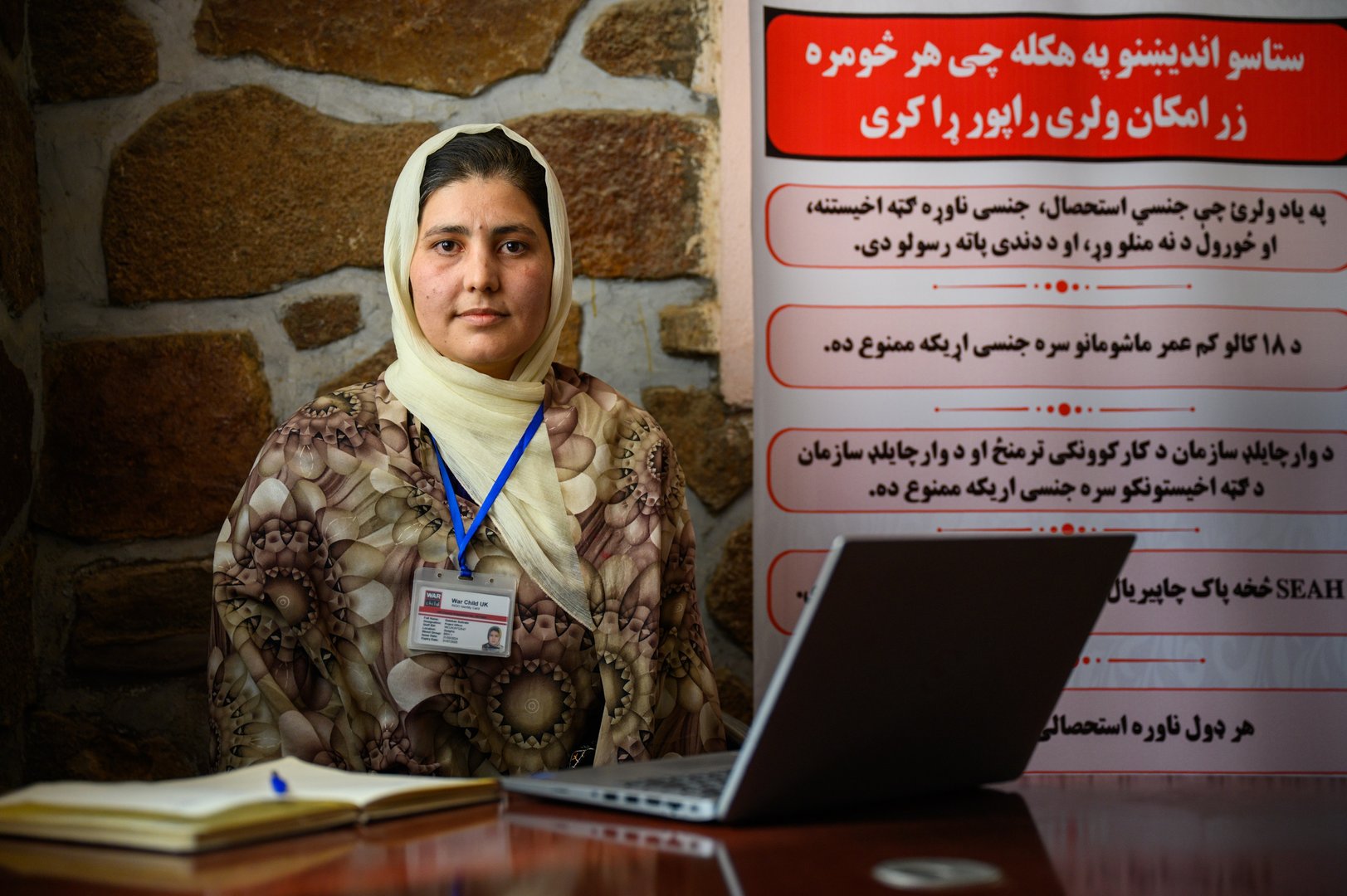
Gulshan Suhrabi - War Child Project Manager for the UK Aid Match funded project.
“Right now, in Afghanistan, one of the few effective opportunities for young people is vocational training, because schools are mostly closed, and students, especially girls, cannot attend classes. They can't continue their education, and one of the only alternatives for them is something that not only keeps them engaged, but can also become a source of income for them and their families.”
“This helped prevent child marriages in some families, both early and forced marriages. It also prevented children from engaging in hard labour, which was another concern.”
“Importantly, families stopped sending their children to work in Iran or Pakistan illegally. They became aware of the risks of illegal migration, and instead pursued trades and skills.”
Creating sustainable change for the future
As Gulshan explains, the benefits from vocational training can span generations, as young people are able to start their own small businesses and give back to the community.
"A trained child or individual can start a production unit, a small workshop, and support other girls in the village who were unable to attend school.
They can help prevent early or forced marriages and uplift others from such vulnerable conditions. They can offer support and enable others to learn trades and become empowered. These girls, too, can gain skills and a brighter future.”
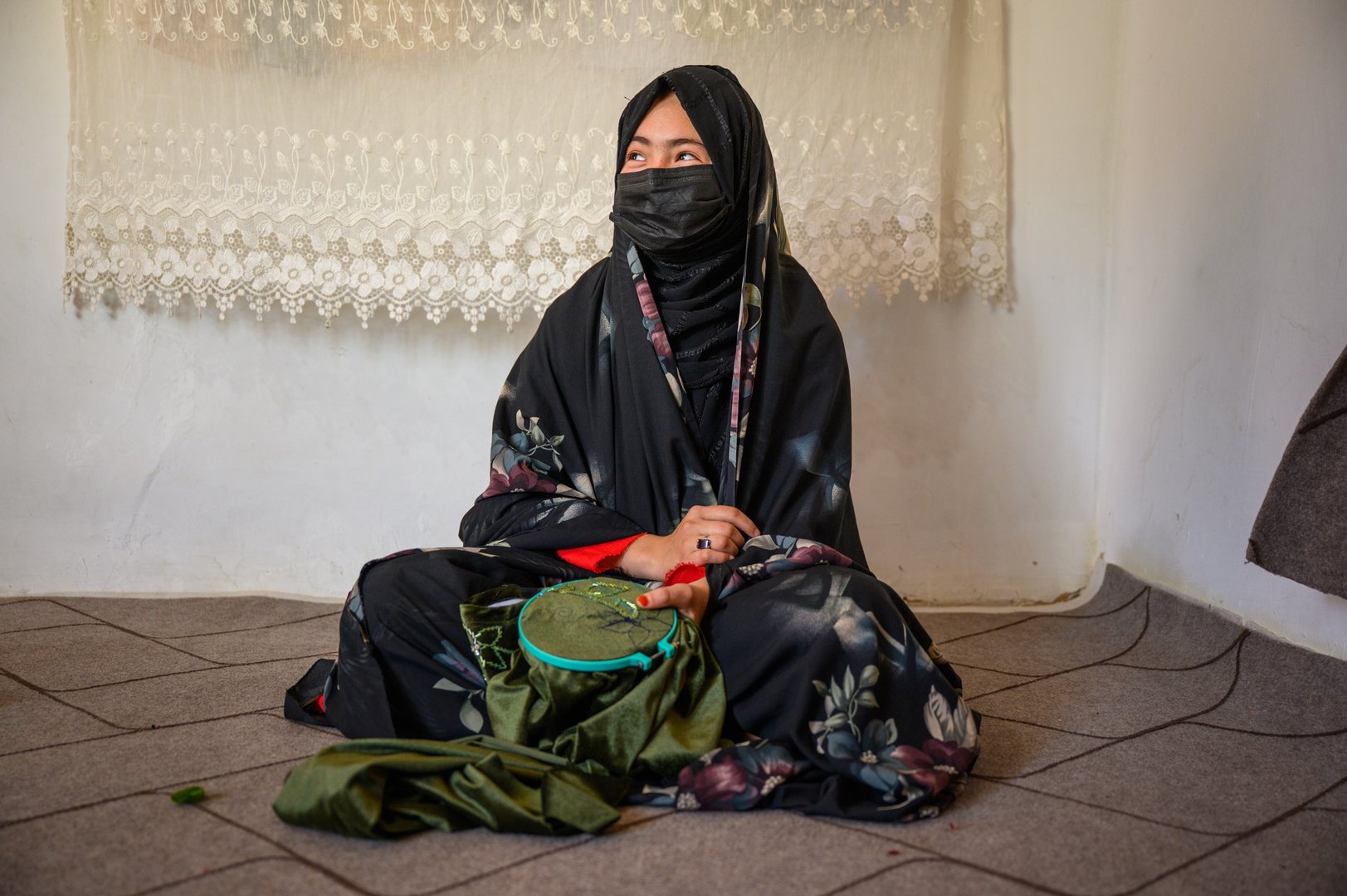
Khatera (15) wants to give back to her community by opening her own tailoring shop.
Khatera (15) has learned traditional "Charma Dozi" embroidery and tailoring during her time as an apprentice, as well as leather sewing and beadwork.
She says she now earns an income from sewing and selling clothes, which helps to cover her family’s household expenses and buy school supplies for her brothers. Her dream is to open a tailor shop and pass on the skill she has learned to her own students one day.
Hope for a peaceful Afghanistan
War Child has been working in Afghanistan to support children since 2002, and we’re not giving up. But more is urgently needed to help the millions of children currently in need.
As Gulshan explains:
“If this aid does not exist, if these organisations do not exist, if these projects do not exist, we must consider that there may no longer be an Afghanistan, there may no longer be a future for children.”
War Child Project Manager for the programme Shafiullah Shahab expresses what we all wish for the children of Afghanistan:
“We hope that they will grow up in a peaceful environment, with brilliant futures, and have access to their basic humanitarian needs.”
